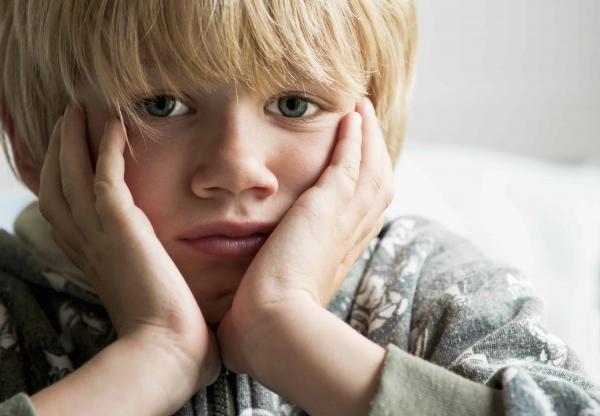
A mother recentlyshared a story about her son, talking about being apprehensive to go to parent teacher conferences. Like all parents, she was a little nervous about what the teacher was going to say. She knew her son was quiet so she wasn't too surprised when the teacher said just that. But what did surprise her was when the teacher said that he plays with other children at recess and their favorite game to play is chase.
That night, as she was tucking her son into bed she asked him about playing chase at recess. His response broke her heart, "I'm not chasing, I want to be on their team but they keep running away from me."
She realized then how lonely her quiet son was. He didn't have friends at school because he didn't really know how to make them.
What does a lonely child have to do with smoking cigarettes?
A recent study showed "lacking social connections is as damaging to our health as smoking 15 cigarettes a day." We spend all of this time teaching our children to refuse cigarettes, but are we teaching our children to be kind, open and friendly? This study suggests both life lessons have the same impact on our health and mortality.
To help our children (and ourselves) to be socially and mentally healthy, address these three things:
1. Social media
Social media makes us feel lonely. We spend hours scrolling past great adventures and people constantly surrounded with loved ones, and inadvertently compare these filter-heavy highlights to our own, seemingly less-adventurous-and-more-lonely, life.
I'm sure this isn't news to you - we all know social media makes us feel lonelier ... but why aren't we doing anything about it? Yes, social media helps us to connect to other people, we get to see amazing things and we get to see how clever people are. But social media makes us forget to connect with real people at work, at a restaurant and at parties. We feel like we already have friends, even when most of our friends (and those interactions) are virtual. While there are benefits to social media, it can't replace interactions with real people in real life.
2. Doing well in school
We pressure our children more than ever to take school seriously. This is important because education really will take us very far in life, but we forget to teach them that part of that education is to reach out and make friends. By focusing only on test scores, we tell them that success is more important than people.
We limit their time with friends because they need to finish their homework. We limit group projects because they are too hard for parents to coordinate. Parents accuse teachers if their children aren't doing well in class instead of talking to their children - This last one may not sound like it relates, but when we teach children to push the blame on someone else instead of taking responsibility, they run away from opportunities to communicate with others.
3. Our Netflix obsessed society
Don't get me wrong - I love Netflix, but we place finishing the next show as more important than doing things with others. You go home from work and binge on Netflix so you can be all caught up on the gossip, instead of making time with friends to catch up on what is actually happening in the world around you.
We place more importance on celebrities and the next season of a show than connecting with real people. By filling our social calendar with season premieres and binging, we trick ourselves into thinking that the shows are our friends. That dependency limits our urging (but not our needs) to make real connections.
How do we combat this vicious cycle of isolation? If you are lonely, chances are the people around you are lonely, too. Try to make a new friend by talking to someone new at work, inviting someone to a device-free lunch or taking cookies to a neighbor. You can make lasting, deep relationships by simply reaching out.

